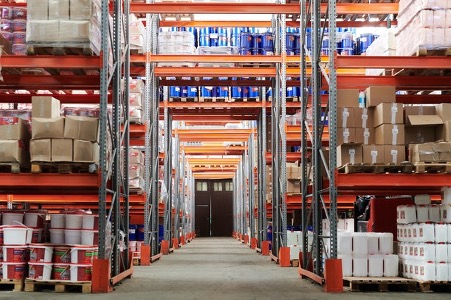As we head into 2022, so does the ever-changing world of inventory management. Kevin Clor is an expert in this sector and frequently contributes to stories on supply chain matters. Below, Kevin Clor takes a look at some of the latest developments in inventory management, trends in product returns, warehousing, and more.
Warehouse Automation Market Set to Sharply Expand
Driven primarily by general merchandise and groceries sold by e-commerce retailers, the world’s warehouse automation market is predicted to grow massively over the next five years, according to a report by Interact Analysis.
Kevin Clor explains that the market is estimated to grow to $69 billion in 2025 compared to the $26.9-billion market notched in 2020. The growth is driven primarily by retailers such as Amazon, Target, and JD.com, all of which offer a diverse range of online goods.
During the past year, there was a plateau in revenue from warehouse automation, while delays caused by supply chain limits and project delays led to an increase in order intake. Still, Kevin Clor says the report finds that the market overall will stabilize in 2022 and then accelerate.
The fastest-growing market within warehouse automation is grocery sales, predicted to rise to 16% of the overall market in 2025.
Return Policies May Lead to Repeat customers
A retailer’s return policy may be a powerful tool in driving sales and creating reliable, repeat customers. According to the 2021 Returns in Retail survey, 79% of shoppers say free returns were the second-most important thing to them while shopping online. Kevin Clor explains that the only other aspect that ranked higher was free shipping.
The study’s findings overall indicate the importance of a flexible return policy in finding new customers and retaining them. The ability to purchase items online and return them to a physical store is also important to nearly half of the survey respondents.
Another survey goes further in its look at retailers and customer satisfaction in 2022. The 2022 Retail Predictions survey from Forrester finds that brands and retailers will invest in return upgrades, such as better processing or more refund locations.
Nike Fights Supply Chain Delays
Kevin Clor says that despite being hit particularly hard by supply chain issues, Nike is posting high sales this year, about $11.4 billion in second-quarter revenue, with digital sales up 12%.
The company attributes the growth in the face of supply chain limitations to enhanced customer experiences, especially on its digital ecosystem, which boasts 79 million members.
Member engagement with the retailer has grown by nearly 30%, mostly coming from a rise in digital demand through Nike’s apps. Nike has also increased investments in its distribution network based in North America and focusing on a supply chain that is digital-first. It’s also increasing its buy online but pick up in stores option for its customers, says Kevin Clor.
Supply Chain Faces a New Type of Cyberattack
A hub attack, a type of cyberattack where businesses unconnected to supply are targeted by hackers, is threatening the flow of the global supply chain.
Kevin Clor says that companies targeted included those involved with credit clearing, insurance, and similar fields that can link together a larger number of customers and valued suppliers. Through a hub attack, hackers attempt to gain access to higher-value company targets, such as energy companies and banks.
Hackers look toward these initial “hub companies” because they can outline how a vendor and supplier interact and then create sophisticated phishing attempts based on the unique information.
Cyberattacks have grown steadily in 2021, with the first 9 months of the year seeing a 40% increase in global cyberattacks compared to the previous year, according to Check Point Software Technologies. Such hub attacks against supply chain companies are expected to rise in 2022.
 The United States Takes Stand Against So-Called Supply-Chain Slavery
The United States Takes Stand Against So-Called Supply-Chain Slavery
Kevin Clor reports that a new bill passed by the United States Congress bans imports from China’s Xinjiang region unless companies in the area can prove there is no forced labor involved in their supply chains.
The bill, formally named the Uyghur Forced Labor Prevention Act, enforces due diligence on the part of Xinjiang companies. The European Commission also recently announced that it is banning imports from the same area.
The moves follow a damning report about Xinjiang outlined by Amnesty International that alleges abuse against the population of Muslim Uyghurs by Chinese authorities. Such abuses include forced labor, surveillance, and detention.
The law means the United States will not import any type of goods produced, made, or mined with forced labor throughout China but especially from the Xinjiang region. The bill has met opposition from major companies, including Coca-Cola and Apple, who have said it will negatively impact their business interests.







